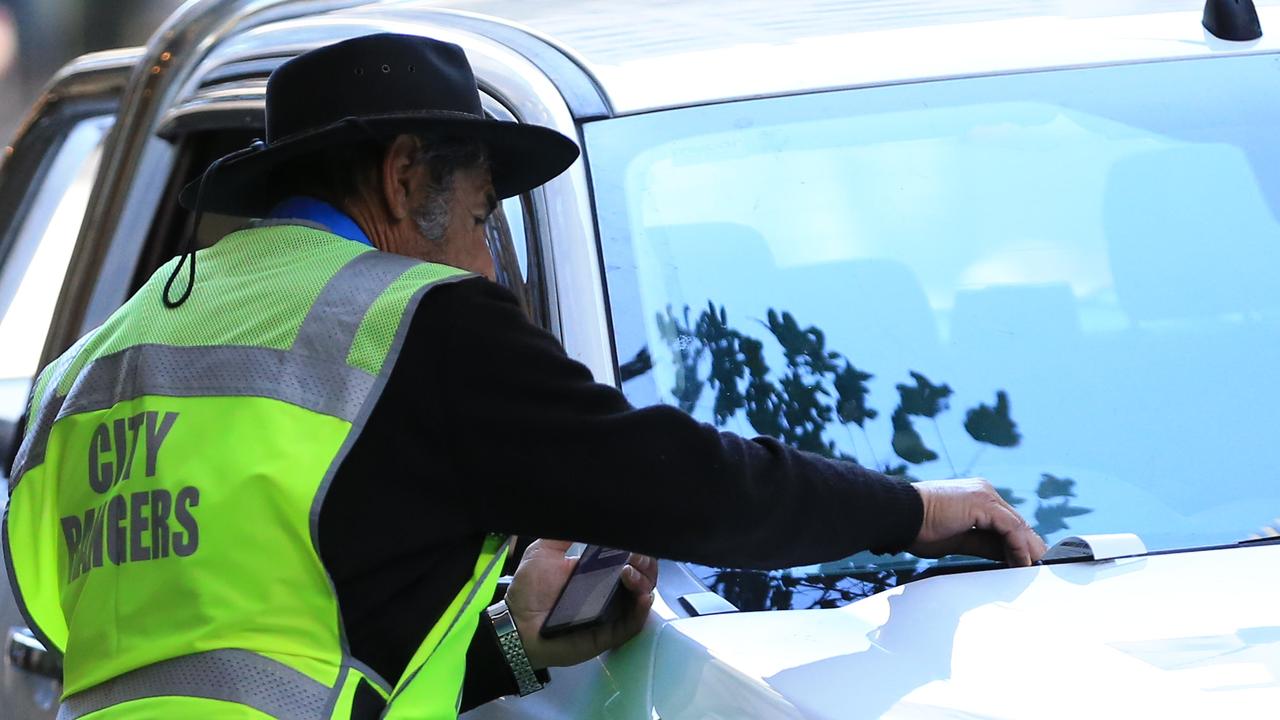Ben Bjarnesen saw domestic violence often as a cop, but missed signs he was a victim too
Twelve years ago, Ben Bjarnesen made a Macca’s run after a night out with mates, and what followed would alter the course of the cop’s life.
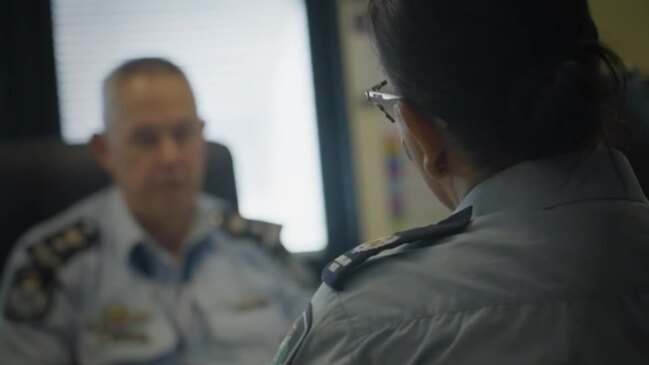
News
Don't miss out on the headlines from News. Followed categories will be added to My News.
After a night out with mates 12 years ago, Ben Bjarnesen and his partner swung by McDonald’s on their way home, and the aftermath would change alter the course of the policeman’s life.
While standing in line among dozens of others in the heaving party suburb of Fortitude Valley in inner-city Brisbane, Mr Bjarnesen overheard the man in front of him speaking Danish.
“My family is Danish, so I said hello in Danish and struck up a very innocent conversation,” he recalled.
“That was about it. I thought nothing else of it, until we got home and there was this massive outburst.”
His partner violently shoved him to the ground, threw things at him and started screaming, accusing him of cheating and of not loving him.
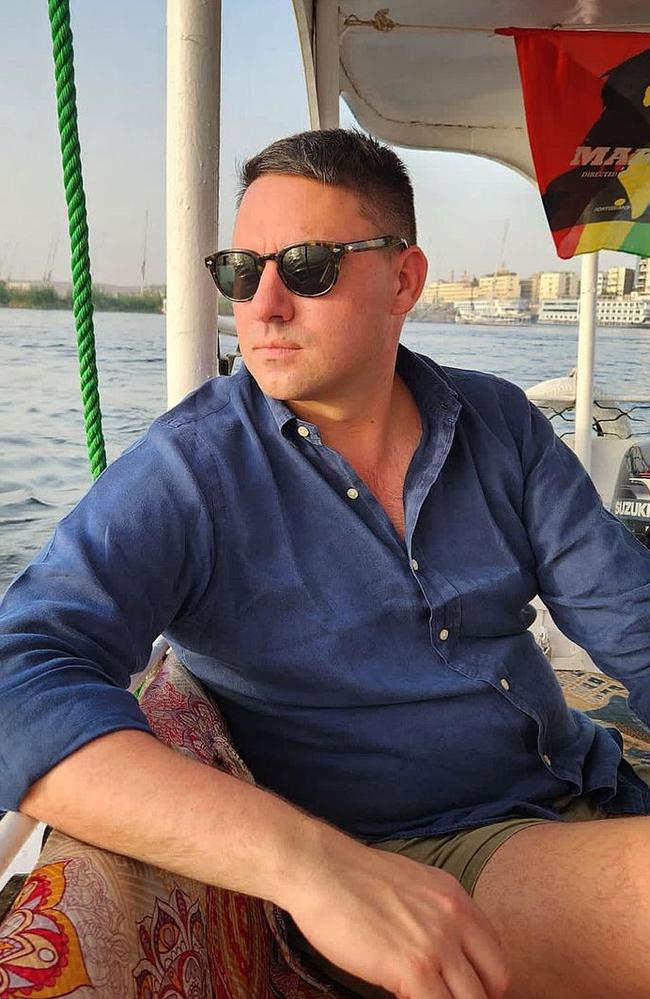
“The next day there came the apologies and justification that he was just scared of losing me and he loved me so much it made him crazy,” Mr Bjarnesen said.
It marked the first experience of violence in their relationship, but not the last.
Over the coming two years, there were many more increasingly physical outbursts that slowly wore him down.
“It cycled through what many DV victims and survivors experience; sometimes it was all great and things went really well, then there was a build-up of tension and things would explode, then the remorse phase, then back to normal again. It was a rollercoaster,” he explained.
“Something horrible would happen, but it was always followed up by gestures and explanations to try to apologise for it or justify it, and promises to be better and not do it again.”


As a police officer, Mr Bjarnesen had responded to countless instances of domestic and family violence, but the overwhelmingly common experience was of a man perpetrating violence against women and children.
“I didn’t recognise what was happening to me. My experience didn’t look like what I saw in my day-to-day professional life,” he said,
“It wasn’t until I did a relationship checklist on a DV website and ticked nearly every box. “There were so many different abusive behaviours at play and that really made me understand what was going on.”
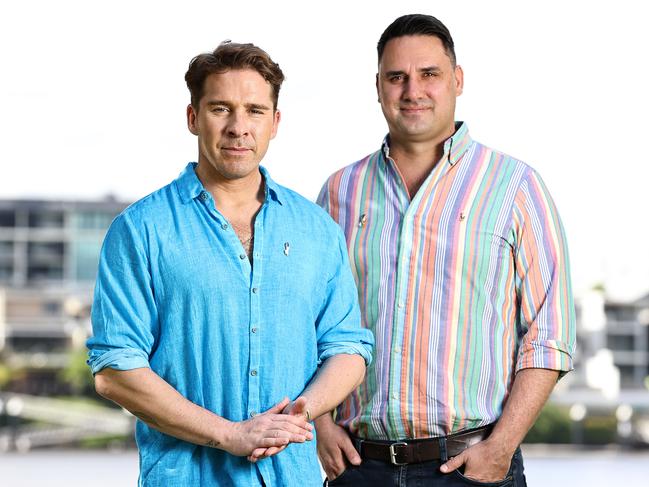
Research indicates about 60 per cent of LGBTQ people have experienced domestic, family and intimate partner violence, but a staggering 72 per cent of survivors don’t report it to anyone.
Of those that do, just 2.3 per cent approach a DV support service for help, leaving many to pick up the pieces of their shattered lives in isolation.
“I realised that if I couldn’t see what has happening to me as DV, despite my job as a cop, what chance have members of the broader community got,” Mr Bjarnesen said.
In 2020, he founded the LGBTQ Domestic Violence Foundation, which held the very first LGBTQ Domestic Violence Awareness Day in the shadow of the rapidly emerging Covid pandemic.
Five years on, the organisation’s scope and reach has grown dramatically, culminating in the development of world-first training for frontline workers to help them better support LGBTQ people who experience violence.
See, Hear, Believe – Responding to Domestic & Family Violence in LGBTQ Communities is a free e-learning resource based on real-life experiences, comprising powerful video stories, exercises and a digital hub for continued learning.
“This training will provide frontline workers with the tools they need to recognise and respond to LGBTQ people who are victims and survivors of domestic or family violence,” Mr Bjarnesen said.
“It will shed light on what LGBTQ identities and experiences look like and the barriers LGBTQ people may face when reporting abuse.”

Mr Bjarnesen experienced the impact of the lack of awareness of LGBTQ domestic and family violence when he left his abusive relationship in 2014 after two long and painful years.
“I got out of there and blocked him on every platform – social media, email and phone,” he said.
“I hoped that would be the end of it, but of course it wasn’t. He somehow found out where I was living and I went to leave to go to work one day and he was asleep at my doorstep.
“There were other incidents where he’d suddenly be where I was.
“He’d create new email and social media accounts and start contacting me again. It was clear the approach wasn’t working, so I applied for a DV protection with the courts in 2015.”

Back then, and still now to an extent, the courts are predominantly designed to support women and children, so when he arrived for his hearing, he was sent to wait with offenders.
“They assumed that’s why I was there,” he said.
“Then the magistrate basically yelled at me and asked why the application was for no contact. “It was explained that it was to protect against serious allegations of physical abuse and she said, ‘I just don’t understand this’.
“The standard in these cases is for the perpetrator to be ordered to not come within 100 metres of the aggrieved.
“But my ex-partner said he would be disadvantaged because there are only four gay bars in Brisbane and he wouldn’t be able to stay 100 metres away if I was out.
“She agreed with him and reduced it to 10 metres. That meant, he could go and stand on the other side of the room of a bar and stare at me and my friends. Having him there, leering at me, was incredibly threatening and scary.”
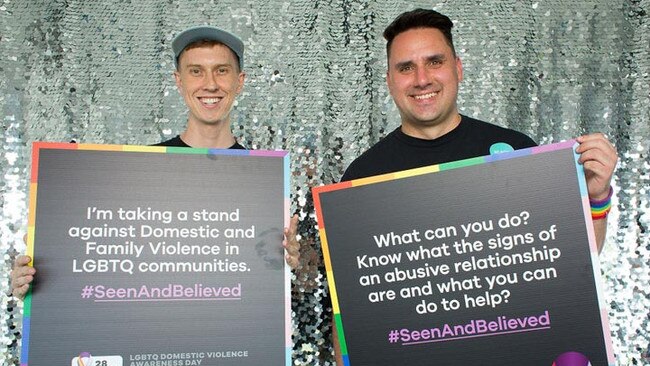
Mr Bjarnesen also endured what many DV survivors do; a crushing stigma that filled him with shame and made him fearful of speaking up to share his experiences.
“I think as both a male and a police officer, there was a stigma there. I worried what people would say, whether they would believe me, whether they would judge me,” he explained.
“I worried people would hear about my experiences and see me as being a cop and a big, tough guy, so maybe I should suck it up and get on with it, or defend myself physically, that sort of thing.
“Being part of the queer community meant there was an extra level of shame. I mean, look at the marriage equality debate and vote. It was really tough and we fought so hard for our relationships to be recognised as equal and loving.
“To have to turn around and concede that we have a domestic violence problem as well can make some people feel like they’re letting the LGBTQ community down.”

Turning the ride and continuing to make progress is challenging in the current climate where much of the conversation about DV is focused on women and children.
“That’s incredibly important, don’t get me wrong, but it’s not the only conversation we need to be having,” he said.
“Just a few days ago, I spoke to a group of about 250 people, which included magistrates, judges and [legal] service providers. I had so many people come up at the end and say, you know, I’ve never actually considered that DV could occur in LGBTQ relationship.
“It’s just often not thought about, and not for any bad reasons, but it’s just they haven’t heard of it, they haven’t seen it happen, so they don’t really know how to react.
“The more awareness we can raise, the more we can advocate for changes or improvements to service delivery.”

See, Hear, Believe addresses some of the barriers to developing skills and training to ensure as many people at the coalface of the DV fight can participate.
“We often hear from groups that they don’t have the budget for training, so we’ve made it free,” Mr Bjarnesen explained
“We also hear that it’s hard to find time to get everyone in a room together to do training, so we’re also putting it online so people can do it through the day, during lunch or at home.
“It also means we can get into regional and remote parts of Australia where it would ordinarily be really hard to do any kind of training.
“It’s a world-first. We’ve had it picked up in the United Kingdom, Canada, Ireland and Sweden, as well as here in Australia.”
Originally published as Ben Bjarnesen saw domestic violence often as a cop, but missed signs he was a victim too


